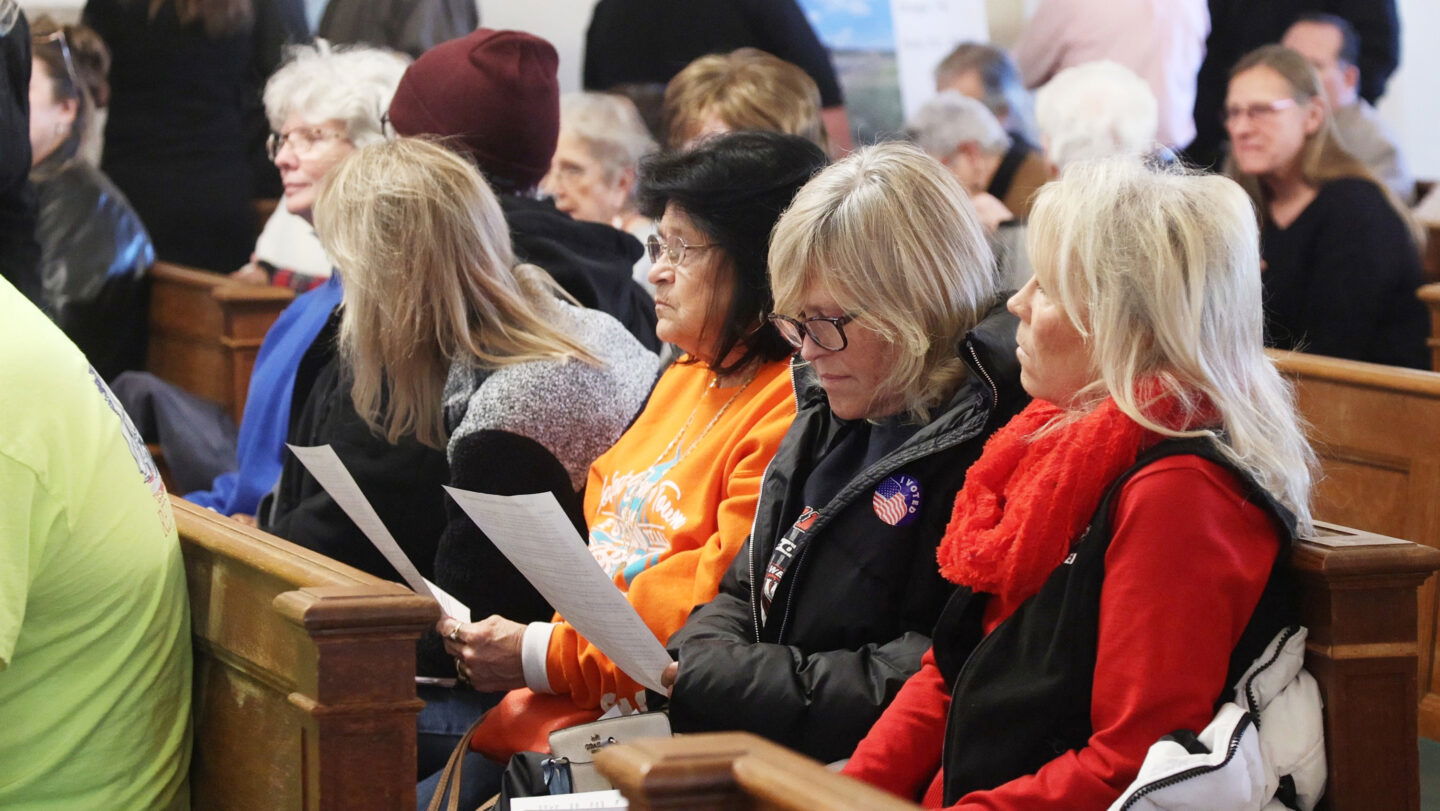City and community members agree to compromise on new landfill rates

By Cameron Montemayor
City leaders and community members agreed on a new compromise for lower landfill dumping fees following extensive and at times heated discussions Tuesday at City Hall.
A near 2½-hour public forum following public backlash to proposed dumping fees ended Tuesday with city leaders dropping a previously-proposed five tier fee structure that would have raised the per-ton rate by nearly 300% for many waste haulers from $32 to $125 a ton.
City leaders worked extensively with a packed-crowd of local waste haulers and residents to create a framework for a new three tier fee structure that will now charge most local and commercial haulers $40 a ton to dump. The $40 rate will apply to commercial trash haulers (pickups and packers), roll-off containers, dump trucks and semis.
“I think we came up with a great compromise today for everyone,” said Jacob Peterson with Redgate Disposal. “It’s going to be great for the residents of St. Joseph. It’s going to be good for the haulers and it should help with the long term viability of the landfill.”
As part of the new structure, cars and SUVs with no open cargo will be charged a flat rate of $20 while large transfer station haulers will be charged $150 a ton, addressing the primary source of a massive 50% influx in landfill dumping rates that forced city leaders to pursue the increase with the landfill on the brink of capacity.
The new fee structure is not intended to be a permanent long-term solution, instead a shorter-term compromise that minimizes significant and sudden impacts on local haulers while also allowing the city to curb outside dumping and expedite construction of the new cell 8, which is expect to resume in the spring and last until 2029. The city intents to use revenue from the rate increase to pay for a contractor to build the cell and provide much-needed additional space.
City Council also agreed to allow additional time before businesses must implement the fee change, something many business owners pleaded with the city to provide. Council will vote on the new rate structure at the Jan. 6 meeting to make rates effective around Feb. 6.
“We have some customers that pay on a quarterly basis and some of them pay on a yearly basis,” said Alex Dunn, owner of All About Trash in De Kalb, Missouri. “If this were to go into effect too quickly, then the trash haulers would be having to basically pay the full brunt of the bill until they were able to bill that customer for it and raise the rate a little bit.”
The city’s initial pursuit of increased dumping rates came after consultant SCS Engineers unveiled eye-opening findings from a study in November showing the city’s average annual tonnage had increased from 100,000 tons to 220,000 over last six years, putting the landfill on pace to reach full capacity and close by next July if not addressed. Landfill officials are aiming to reduce the number down to around 150,000 tons a year going forward.
Consultants attributed the massive waste increase to St. Joseph’s dumping rates being one of the cheapest in the state and one of the lowest in the entire country, leading to a surge in outside haulers taking advantage of lower dumping rates. St. Joseph’s dumping rate has seen little change since 2002 when it was raised to $34. In 2018, councilmembers elected to decrease the dumping rate to $32 to lure additional business and revenue, a move that correlated with the landfill’s dramatic increase.
The additional closure of Lee’s Summit landfill in 2019 was another likely factor in the city’s increase.
Discussions on Tuesday about dumping rates of surrounding landfills morphed into a conversation about how much competing landfills were actually charging customers per ton. Several haulers in attendance raised the point that many regional landfills offer custom rates to regular customers that are much lower than the amount the city was using to base it’s initial increase on, leading the city to consider changes that were later agreed upon.
“It showed that the City Council’s sees a lot of the issues with the first plan that they had and they’re willing to make adjustments to it,” Dunn said. “What they’ve talked about tonight seems more reasonable.”
Many area haulers agreed that more consistent planning and evaluations of landfill rates will be needed to avoid capacity dilemmas like the one the city is facing. The city went nearly eight years between the opening of cell 6B in 2015 and cell 7A in spring 2023, a project delayed by nearly two-years due to complications with underground rock.
Councilmembers and those in attendance supported a proposal by councilman Jason Eslinger to create a new Landfill Commission represented by local experts and industry leaders to meet regularly. The city also plans to conduct new landfill fee studies on a yearly-basis to adjust and prepare as needed.
“I’m excited that the board is looking at doing a commission to review the landfill prices, there’s going to be a lot of value to that, bringing in people that are experts on the ground,” Peterson said.
Dunn said Tuesday’s agreement to change proposed rates and tiers from $135 a ton to around $40 could help local haulers avoid significant financial strain, potentially even bankruptcy.
“I think it’s important to keep business in St. Joe local. All these trash haulers are local people and, you know, their families live here and if they were to go under, there would be a void and that would immediately be filled by a big box office trash company,” Dunn said.



